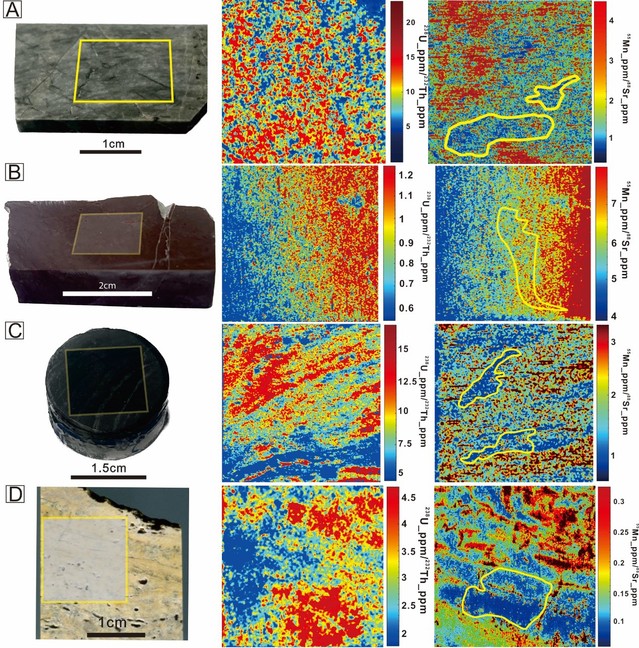Yuxiang Jianga, Simon V. Hohla, Xiangtong Huanga, Shouye Yanga
aState Key Laboratory of Marine Geology, Tongji University, Shanghai, 200092, China
Abstract:Some of the earliest bio-sedimentary records of life on Earth are represented by microbial carbonates, which are also critical geochemical archives of ancient seawater chemistry and the environmental circumstances in which they precipitated. Reconstructing paleo-microbial environments on Earth and potentially other planets requires precise determination of the depositional ages of these materials. The (abiogenic) carbonate geochemistry communities can now use developments in in-situ laser ablation U-Pb dating using inductively coupled plasma mass spectrometry (LA-ICP-MS). Due to the effects of impurity mixing and diagenesis, microbial carbonates have received little geochronological study despite their broad relevance for understanding ancient seawater's environmental conditions and geochemical compositions. This study demonstrates using time-of-flight mass spectrometry (TOF-MS) to perform quick, quantitative elemental mapping before U-Pb spot dating to improve experiment success rates and data reliability and offers four practical application examples.
Full article:https://doi.org/10.1016/j.gsf.2023.101736



